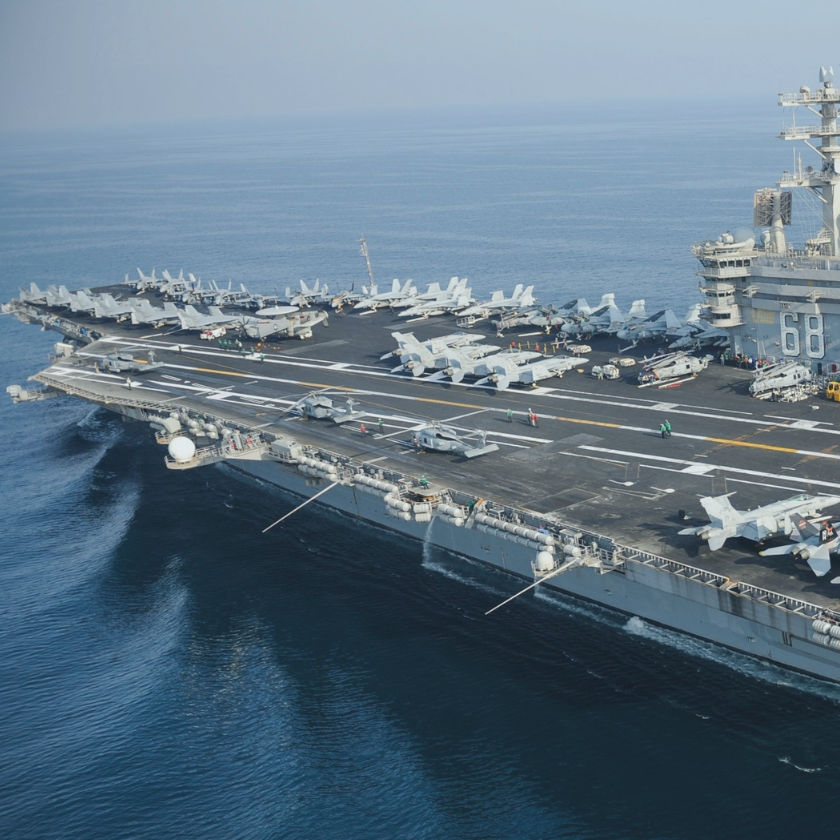Defense Policy and Armed Forces
As military competition increases, nations are adapting their defense policies and transforming their armed forces. Doctrine, organization, equipment and training are key to understanding the evolution of land, air and naval forces.
Related Subjects

Racial integration - Lessons from the U.S. Army
On Friday, the 13th of January, 2012, the Center for Migrations and Citizenship welcomed 3-star U.S. Army General Bostick as a speaker of its international conference: "Business and the State: Migration Policies, Diversity and Integration".
Digital Hoplites: Infantry Combat in the Information Age
FELIN, the world's first "integrated soldier system", will enter service in the French Army this year. Throughout history, infantrymen have sought to capitalize on technology while seeking the best compromise between three basic requirements: mobility, firepower and protection of combatants.
Toward the End of Force Projection? II. Operational Responses and Political Perspectives
For more than a decade, US defense circles have been concerned about the emergence of capabilities and strategies, which, as they spread, risk imperiling the United States" position in the world by their ability to disrupt or prevent force projection operations. Though most of the literature on such “anti-access” strategies focuses on the military aspects of the threat, this Focus stratégique - the second and last part of a two-part study - adopts a different perspective.
East Asian Regional Economic Integration: A Post-Crisis Update
To the surprise of many analysts, the outbreak of the global financial crisis (GFC) in 2008 did not leave East Asian economies unscathed. The objective of the paper is to examine the implications of the GFC for the regional economic integration process in East Asia, taking into account both the de facto and the de jure dimensions.
Toward the End of Force Projection? I. The Anti-Access Threat
Force projection has become a general posture and a fundamental dimension of the influence Western powers intend to exert over the world by means of their armed forces.
La guerre des hélicoptères : L'avenir de l'aéromobilité et de l'aérocombat
Military helicopters have evolved into technologically sophisticated weapon systems. Originally designed to counter Soviet armor, attack helicopters now have to cope with a wide spectrum of threats, some of them bringing choppers back to their counterinsurgency roots.
Economic Constraint and Ukraine's Security Policy
Since winning the 2010 presidential elections in Ukraine, Viktor Yanukovych has worked hard to repair Kyiv's relationship with Moscow.
Hoplites numériques : Le combat d'infanterie à l'âge de l'information
FELIN, the first "integrated soldier system" in the world, will be effective this year in the French Army. Throughout history, infantrymen have tried to capitalize on technology while trying to arbitrate between the three basic requirements that are mobility, firepower and force protection.
Les camps de réfugiés et la guerre : Du sanctuaire à l'enfermement humanitaire ?
Refugee and IDP camps, intended to protect civilians affected by conflicts and natural disasters, have an undeniable strategic importance, and their management can be critical for the resolution of crises.
German Military Engagement in Afghanistan: Conditions, Assessment, Outlook
Since the beginning of 2010, German authorities have become conscious of the fact that they cannot continue to maintain the Bundeswehr’s involvement in Afghanistan with a majority of the German population opposing it. It is clearly understood that the federal government and the Bundestag will adhere to President Obama’s plans to gradually withdraw national troops from ISAF, starting in the summer of 2011, and to hand over complete control of the country’s security to Afghani authorities.
Support independent French research
Ifri, a foundation recognized as being of public utility, relies largely on private donors – companies and individuals – to guarantee its sustainability and intellectual independence. Through their funding, donors help maintain the Institute's position among the world's leading think tanks. By benefiting from an internationally recognized network and expertise, donors refine their understanding of geopolitical risk and its consequences on global politics and the economy. In 2024, Ifri will support more than 70 French and foreign companies and organizations.






